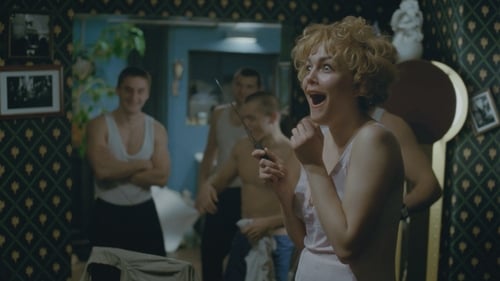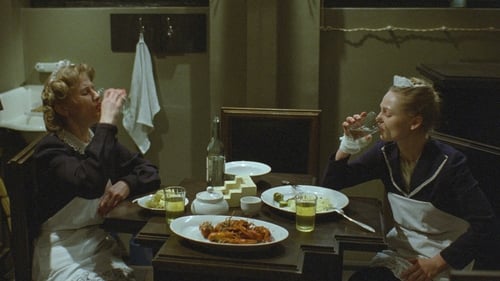
Executive Producer
Nikita Nekrasov is a scientist, a theoretical physicist who studies our world and other possible worlds. He refuses to make a choice between mathematics and physics, between one woman and another, as he ponders the existence of the multi-universe. At scientific conferences, attended by eminent foreign scientists and a rising younger generation of physicists alike, Nekrasov gets carried away debating the beauty of string theory. He attempts to explain to all of his women – Katya, the librarian, Zoya, the scientific secretary, Svetalana, the head of department – about the theory of his own polygamy, and the possibility of having enough feelings to satisfy everyone.

Co-Producer
A secret Soviet Institute conducts scientific and occult experiments on animals and human beings to create the perfect person. The KGB general and his aides turn a blind eye to erotic adventures of the director of the Institute, scandalous debauches of prominent scientists and their cruel and insane research. One day, a radical ultra right-wing group arrives in the laboratory under the guise of test subjects. They get a task - to eradicate the decaying elements of the Institute’s community, and if needs be, destroy the fragile world of secret Soviet science.

Co-Producer
Natasha runs the canteen at a secret 1950s Soviet research institute. This is the beating heart of the DAU universe, everyone drops in here: the institute's employees, scientists and visiting foreign guests. Natasha's world is a small one, split between the demands of the canteen during the day and alcohol fuelled nights with her younger colleague Olga, during which the two confide their hopes of romance and for a different future. At a party one evening Natasha becomes close to a visiting French scientist Luc Bige and the two sleep together. The following day her life takes a dramatic turn when she is summoned to an interrogation by the KGB's General Vladimir Azhippo who questions the nature of her relationship with the foreign guest.

Executive Producer
The last film in Vidokle's trilogy on Cosmism is a meditation on the museum as the site of resurrection-a central idea for many Cosmist thinkers, scientists and avant-garde artists. Filmed at the State Tretyakov Gallery, the Moscow Zoological Museum, The Lenin Library, and the Museum of Revolution, the film looks at museological and archival techniques of collection, restoration and conservation as a means of the material restoration of life, following an essay penned by Nikolai Federov on this subject in the 1880s. The film follows a cast comprised of present-day followers of Federov, several actors, artists and a Pharaoh Hound that playfully enact a resurrection of a mummy, a close examination of Malevich's Black Square, Rodchenko's spatial constructions, taxidermied animals, artifacts of the Russian Revolution, skeletons, and mannequins in tableau vivant-like scenes, in order to create a contemporary visualization of the poetry implicit in Federov's writings.



